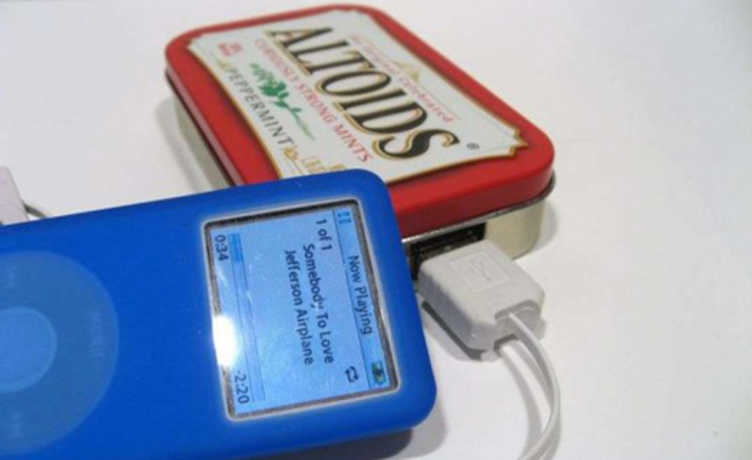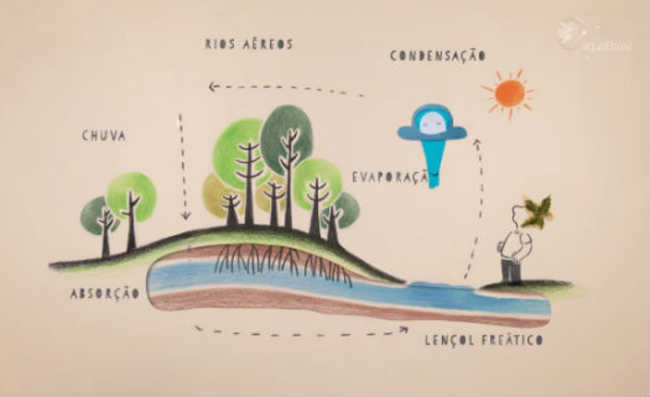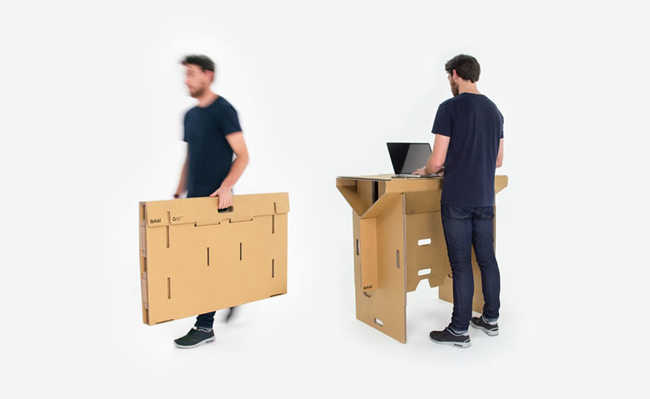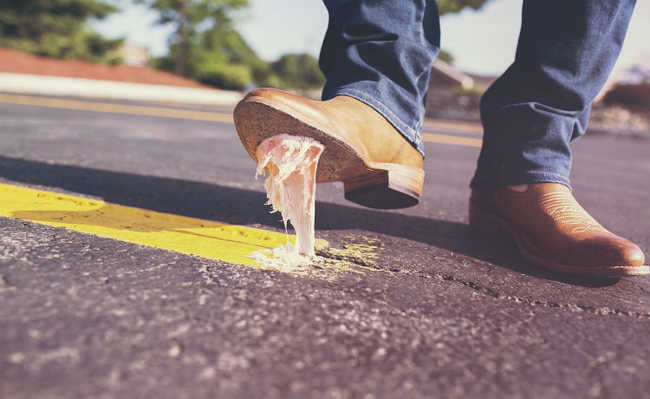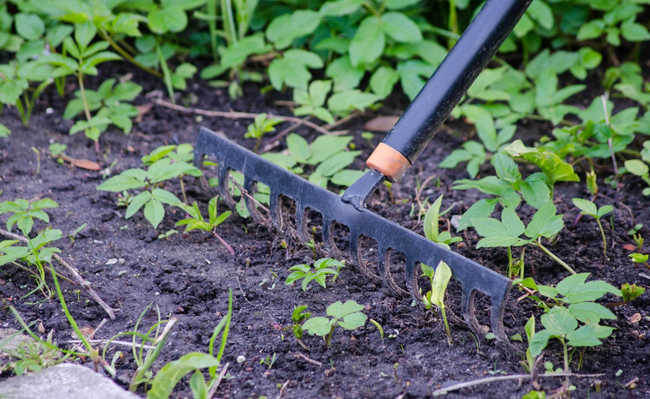decomposition takes time
The waste decomposition time varies according to the nature of the materials that compose it.

Image: John Cameron in Unsplash
The term “decomposition time” refers to the time it takes for products to decompose and disappear from the medium, varying according to the nature of the material. In addition to the long period of decomposition, many materials cause harm to the environment and the health of humans and animals if disposed of incorrectly.
Much of the packaging we consume can be recycled, re-entering the production chain and ridding the environment of a pile of waste whose decomposition will take thousands of years. Recycling these materials helps to reduce the waste produced and ensures better use of the planet's natural resources.
Waste and tailings
Waste is everything that is left over from a given product, whether its packaging, shell or other part of the process, which can be reused and recycled. For this, the materials need to be separated according to their composition. Tailings is a specific type of disposal, one for which there is still no possibility of reuse or recycling. An example of waste is bathroom waste, for which there are still no economically viable and far-reaching recycling options.
- Learn more in the article "Do you know the difference between waste and tailings?"
garbage decomposition
Waste produced by human beings can take several years to decompose, generating serious social and environmental problems. Materials such as plastic, glass, paper and metals can be recycled and transformed into new products, at a much lower cost to the consumer. In addition, recyclable packaging saves electricity, pollutes less and uses less non-renewable natural resources for its manufacture.
One of the focuses of study in Chemistry is the establishment of relationships between the constitution and properties of materials, their use in products and the impacts associated with the processes of transformation and circulation in the environment. When working with the relationship between materials that make up products and the environmental impact caused by their disposal, it is very common to come across tables that present a list of materials and the time required for the decomposition of each one in nature. See below:
| Materials | decomposition time |
|---|---|
| Paper | From 3 to 6 months |
| Tissue | From 6 months to 1 year |
| cigarette filter | More than 5 years |
| painted wood | over 13 years |
| Nylon | More than 20 years |
| Metal | over 100 years |
| Aluminum | More than 200 years |
| Plastic | More than 400 years |
| Glass | More than 1000 years |
| Rubber | Undetermined time |
The importance of recycling
Recycling is a process that consists of transforming used materials into new products, which can be reinserted into the consumption chain without the need to extract more natural resources. It is an action that significantly contributes to environmental preservation and the reduction of waste produced by human beings.
- Recycling: what is it and how important is it?
Several products made up of glass, plastic, paper or aluminum can be recycled in order to reuse materials, reduce raw material consumption and reduce water, air and soil pollution. In addition, recycling minimizes the amount of waste accumulated in landfills and dumps, helping to reduce the production of toxic gases and leachate — substances that are very harmful to the environment.
Recycling is also important for society, since it generates jobs in cooperatives and contributes to the income of several recyclable material collectors, who do a very important job collecting, separating and sending the material directly for recycling.
Selective collection is the name given to the collection of materials that can be recycled, which were previously separated in the generating source. This is the first step so that the various wastes are properly sent for recycling, generating savings in the process and favoring its execution.
- What is selective collection?
Waste such as cells and batteries must be taken to specific collection sites. In addition to harming the environment, these materials can release substances that cause health problems in human beings, such as kidney, lung and brain difficulties, in addition to environmental contamination.
- How to dispose of batteries?
Organic matter decomposition
When talking about organic matter, decomposition is the process by which organic waste is broken down into smaller particles and nutrients, through the action of decomposing organisms. These nutrients are returned to the environment and can be reused by animals and plants.
Organic matter decomposition tends to be faster than the process involving solid waste.
By ensuring the circulation of nutrients, decomposition is essential for the maintenance of life on Earth. The microorganisms responsible for this process are bacteria and fungi, which are fundamental for carrying out biogeochemical cycles.
Decomposition can be divided into two processes. The first, called aerobic decomposition, occurs quickly and results in the formation of carbon dioxide and mineral salts. The microorganisms that decompose organic matter depend on oxygen in the air to carry out decomposition. The other process, called anaerobic decomposition, is carried out by soil microorganisms that do not require the presence of oxygen for their survival. This is a reaction that can give rise to compounds that are harmful and toxic to living beings, such as methane and hydrogen sulphide.
Earthworms do a work of fragmenting organic matter that allows the entire life cycle to be renewed. Facilitating decomposition by micro-organisms, they contribute to the generation of humus, enrichment of the soil, reduction of waste destined for landfills and dumps and reduction in the emission of greenhouse gases.
- Earthworms: environmental importance in nature and at home
Through composting, leaves and peels of fruits and vegetables can be transformed into organic compounds or fertilizer for plants. It is a natural process in which microorganisms, such as fungi and bacteria, are responsible for the degradation of organic matter, transforming it into humus. In this way, there is no need to dispose of organic substances in landfills.
- What is compost and how to make it?
changing habits
Currently, landfills are the destination for most of the garbage collected in cities. However, they should only receive tailings, that is, materials that cannot be reused, recycled or transformed into fertilizer by composting.
- Sanitary landfill: how it works, impacts and solutions
In addition to littering streets and clogging drains, garbage pollutes rivers, attracts disease-carrying animals and contaminates soil and groundwater. When it reaches the oceans, improperly disposed waste disrupts the life cycle of many animals, which are trapped or fed on it.
The correct disposal of waste is essential so that recyclable materials do not remain in the environment causing damage to species. Therefore, it is essential to be ecologically aware and rethink our consumption habits. The decomposition time of each material should influence our purchasing decisions and the destination we give to the products.
- For the disposal of recyclable waste, check the gas stations closest to your home in the free search engine at eCycle portal
The 3R's Principle - reduce, reuse and recycle presents itself as a viable solution to problems related to waste. It is a proposal on consumption habits, popularized by the environmentalist organization Greenpeace, which aims to develop more sustainable actions.
Reduce
What to do to reduce:
- Avoid unnecessary packaging. Bring your own shopping bag;
- Don't buy disposable soda and other beverage containers;
- Prefer products with recyclable packaging;
- Always buy durable and resistant products;
- Plan your purchases well so there is no waste;
- Avoid disposable products;
- Decrease the use of plastics;
- Whenever possible, replace plain paper with recycled paper.
reuse
What to do to reuse:
- Set aside bags, paper bags, glasses, egg cartons and wrapping paper that can be reused;
- Use the back of used sheets of paper for drafting;
- Use a non-disposable coffee strainer;
- Think about restoring and conserving before throwing it away;
- Donate clothes, furniture, household appliances, toys and other objects that can be reused by others;
- Take your snack or lunch in reusable containers;
- Do not dispose of broken devices. They can be sold to the junkyard or dismantled, reusing the parts;
- Cardboard or plastic boxes are always needed at home. Keep them even if they are not to be used immediately.
Recycle
What to do to recycle:
- Make home compost;
- Separate recyclable materials (paper, glass, metals and plastics) to:
- deliver to selective collection stations;
- donate or sell to scrap dealers.

